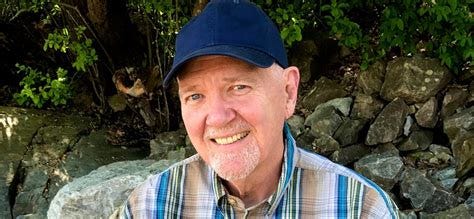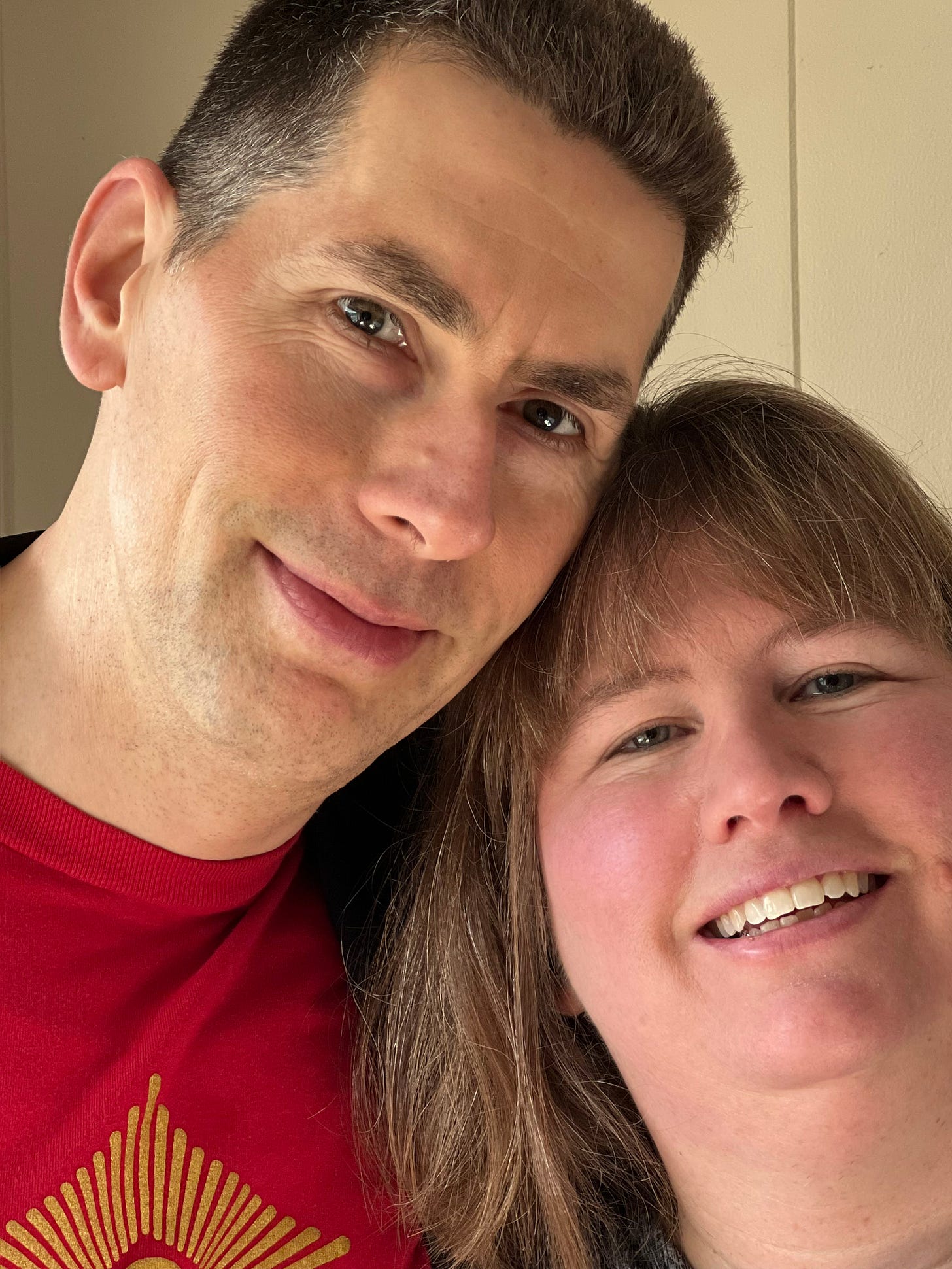BAR HARBOR—Honesty doesn’t necessarily seem like a main component of a novel, but for Camden author Ned Bachus, honesty is a hallmark of his fiction.
The author of Mortal Things will be at the Jesup Memorial Library, tomorrow, Thursday, March 16 at 7 p.m. for a reading and discussion of his novel.
“When I write fiction, my focus is on rendering the characters in a way that feels honest and true to my understanding of them. I don’t try to spin them in a way that might endear them to a reader or make a reader think ill of them,” Bachus said. “I want to present them as accurately as I can, based on what is at their core, what they’ve experienced, and, to a degree, how they understand the world to operate—because I think that steers humans more than we might realize. Even characters/people who might not ever articulate an understanding of how life operates, or might not ever pause to consider such a thing, have a view of how life/the world operates, and that perspective informs their decisions and actions. And such things are subject to change.”
Bachus earned an MFA at Vermont College of Fine Arts and had to balance his time as a counselor and then teacher at Community College of Philadelphia. Mortal Things, though not his first book, took 36 years to write because he worked on it in stages, balancing other projects and his employment with its writing. He devoted the last four years to the story, wrangling the three characters’ points of view onto the page.
“Writers try to create characters that make the reader want to turn to the next page. I think that happens in a reader because of a combination of an intriguing character and a compelling story. In one story (novel, short story, film, theater production, or TV series), we might love and cheer for the protagonist from page one to the final climax,” he said. “Other times, we become enthralled by moral train-wreck scoundrels, maybe because we recognize some core humanity in them or in another character, or we become hooked by the story’s human challenge, one that we might know all too well from personal experience. Stories have done that to us from the beginning of time.”
Mortal Things takes place in Mount Airy, Philadelphia in 1989 and according to the Bachus,
“Sarah Goins, a college professor with a thriving career and close-knit academic community, is eager to draw her boyfriend Mike Flannagan deeper into her world. But Mike, a groundskeeper at a local seminary, resists, instead keeping her at arm’s length as he struggles to come to terms with a past haunted by loss.
“Late one night, Mike crosses paths with Domenic Gallo, a neighborhood barber who has been injured in a mugging. As Mike helps the elderly man, Domenic tends to his own painful history, and the two strike up an unlikely friendship built around mutual understanding of each other’s grief.
“When outside forces drive Sarah and Mike further apart, Sarah seeks out Domenic in an attempt to salvage her floundering relationship. Like Mike, she is drawn into the world of Domenic’s barbershop and the new sense of community it offers.”
It’s received wonderful acclaim with the Midwest Book Review saying, “Erudite, insightful, deftly crafted, entertaining, thoughtful and thought-provoking, Mortal Things by author Ned Bachus is one of those novels that will linger in the mind and memory long after the book itself has been finished and set back upon the shelf.… Unreservedly recommended.”
Story is about more than reviews. It’s also about intention and resonance. That’s true for novels, shorts stories and even the news. Mortal Things doesn’t stray from the emotional hardships that create three-dimensional, authentic characters and that’s partially rooted in Bachus’ own childhood.
He said,
“The three point-of-view characters in Mortal Things each carry heavy emotional baggage, and the anchors that they use in life are quite different and of varying efficacy. I’ve never shied away from attempting to present characters that are different from me. Of course, writers can botch it when they try to create a character that is far from their own nature or experience, but to avoid the challenge of giving voice to characters that are not like you is to severely limit your range of characters. Maybe because I was raised by a single mother, and counted aunts and grand aunts as the core of my family, I never found a woman’s perspective foreign. I knew ‘difference’ pretty early on. All those women were either from or still living in French-speaking Quebec. My father’s family (with whom I had only occasional contact) were farmers in Oklahoma, a far cry from the urban dwellers around me in Philadelphia. My neighbors were diverse in just about every way you can imagine, so it seemed very normal to me to expect humans to have both differences and similarities. We ended up living in and raising our own children in the same neighborhood, and, no surprise, that became my fictional terrain.”
That terrain on the page can be hazardous as Bachus throws up obstacles for Sarah, Mike, and Domenic who must deal with issues of class, loyalty and faith while also grappling with what exactly is family. Each comes at those issues from their own distinct points of view.
“You asked if giving weight to three disparate point-of-view characters was difficult. So much of the work of writing is extremely difficult, but diving into the lives of different people—especially characters who become so unexpectedly connected—was a welcoming challenge,” Bachus said. “I loved getting to know them better and felt fueled by the surprises that came as they found themselves more and more tied to one another.”
Understanding place and setting and how it impacts a community and culture and vice versa has been integral to his own disparate influences as well as his time in Philadelphia before coming to Maine where he has devoted much of his time to writing.
“What exactly is difficult about writing fiction? The lack of a guidebook for your particular story is one thing. How will you know when you’re really done with it? If you’re writing a novel, the architecture can be overwhelmingly complicated. I have stacks of notebooks filled with charts about backstories and with questions and ruminations. Finding and removing errors both simple and great is part of the entire journey, not merely something that writers put behind them at a particular stage of the process—in fact, you’d swear gremlins get into your manuscript while you’re asleep and plant new glitches,” he said. “And they do this night after night! But when a reader tells you that your story meant something to them, that they ached for this character, that they laughed at a certain scene, that they passed the book onto someone they thought would love it, well, then you feel both tremendous gratification about doing the work and a powerful and unique connection with someone you might never have otherwise met. That’s nothing short of a blessing.”
Bachus’ collection of short stories, City of Brotherly Love, was awarded the 2013 Independent Publisher Award (IPPY) Gold Medal for Literary Fiction. About the book, Sena Jeter Naslund, author of Ahab’s Wife, said “[My] life is variously enriched by reading Ned Bachus’s superb stories.” The recipient of two fellowships from the Pennsylvania Council on the Arts, his 2017 book, Open Admissions: What Teaching at Community College Taught Me About Learning, was the product of his nearly four-decade career at Community College of Philadelphia, where he won multiple teaching awards. Ned holds a BA from Temple University, an MA from Gallaudet University, and an MFA from Vermont College of Fine Arts. Born in Quebec and raised in Philadelphia, he lives in Camden, Maine. His website is here.
REGISTRATION
This event is a hybrid program and registration is required to attend either in person or on Zoom. Register at jesuplibrary.org/events/mortal or email eventsignup@jesuplibrary.org.
DIRIGO TREASURES
Next Thursday, March 23, at 7 p.m., the Jesup Memorial Library will host a conversation with Kurt and Kelly Stokes of Dirigo Treasures Maine.
Is it possible, in the 21st century, to design and successfully execute a real-world $20,000 treasure hunt experience in celebration of Maine’s 200th anniversary? What are the challenges? What are the opportunities? What are the limitations? And what are the joys of doing so?
Kurt and Kelly Stokes will discuss Dirigo Treasures Maine, their $20,000 treasure hunt card game launched in December 2020. They will share stories of its creation, how it came into being, the successes, the unexpected challenges, and some thoughtful must-do advice for future treasure hunt designers. The Stokeses will also answer questions about the game, relay the current status of the treasure hunt for the now 3,500+ players participating, and perhaps share a very special hint as to exactly where Maine’s $20,000 Dirigo Treasure may be found!
Kurt and Kelly Stokes are owners of Dirigo Treasures, LLC, based in Newcastle, Maine. They have lived and traveled extensively in Maine for nearly thirty years. Puzzle and riddle enthusiasts, they have always had a fascination in their spare time with exploring the possibilities of attempting difficult projects which challenge the mind with their complexity, and also the heart with their potential to give back in part to the community. Kelly, a life-long educator, is currently the director of special services at AOS93 in Damariscotta. Kurt, an INTJ personality by nature, currently works as a grants and contracts manager for the University of Maine System. They share a 23-year-old son John, as well as a charmingly spunky senior cat named “Little Girl.”
This event is a hybrid program and registration is required to attend either in person or on Zoom. Register at jesuplibrary.org/events/dirigotreasures or email eventsignup@jesuplibrary.org.









